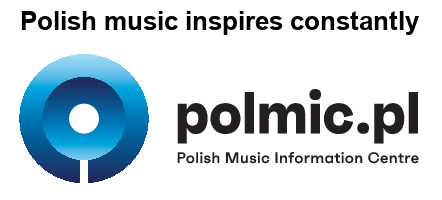2008 in Polish Music – A Subjective View
In the world of Polish music, the year 2008 abounded, as usual, in major events. A comprehensive survey of music life is virtually impossible, so the following ought to be seen as a subjective attempt, from our point of view. Could we point to one single most important event of the year, Probably not – but we also encourage our readers to share their own observations, the most interesting of which will be published on our site.
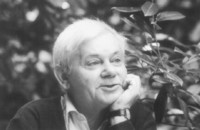 The Polish Parliament proclaimed the year 2008 the Zbigniew Herbert Year to commemorate the 10th anniversary of the poet’s death. These celebrations occasioned numerous musical events as well, including the Zbigniew Herbert Festival “The Music of Words” (Gdynia and Gdańsk, 2nd-3rd August 2008) and the special concert “Zbigniew Herbert’s Silk of the Soul” under the Honorary Patronage of Katarzyna Herbert (Warsaw, 23rd November 2008). In the Zbigniew Herbert Year, the PROBALTICA Foundation for Baltic Culture and the Polish Composers’ Union organised a competition for composers.
The Polish Parliament proclaimed the year 2008 the Zbigniew Herbert Year to commemorate the 10th anniversary of the poet’s death. These celebrations occasioned numerous musical events as well, including the Zbigniew Herbert Festival “The Music of Words” (Gdynia and Gdańsk, 2nd-3rd August 2008) and the special concert “Zbigniew Herbert’s Silk of the Soul” under the Honorary Patronage of Katarzyna Herbert (Warsaw, 23rd November 2008). In the Zbigniew Herbert Year, the PROBALTICA Foundation for Baltic Culture and the Polish Composers’ Union organised a competition for composers. 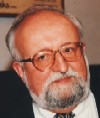 The previous year was also marked by the 75th birthday celebrations – at home and abroad – of Poland’s two most eminent composers of today: Krzysztof Penderecki (on 23rd November) and Henryk Mikołaj Górecki (on 6th December). In Poland, Penderecki was honoured with a festival of his name (on 20th-23rd November in Warsaw), which culminated in the world’s first performance of the composer’s String Quartet No. 3 by Shangai Quartet (21st November). The Music Academy in Gdańsk granted him an honorary doctorate (on 6th November), the Music Academy in Cracow organized a series of concerts, conferences, lectures, and master classes, as well as the 1st International K. Penderecki Cello Competition (14th-20th December), and on 13th December the premiere of The Devils of Loudun inaugurated the new Cracow Opera House.
The previous year was also marked by the 75th birthday celebrations – at home and abroad – of Poland’s two most eminent composers of today: Krzysztof Penderecki (on 23rd November) and Henryk Mikołaj Górecki (on 6th December). In Poland, Penderecki was honoured with a festival of his name (on 20th-23rd November in Warsaw), which culminated in the world’s first performance of the composer’s String Quartet No. 3 by Shangai Quartet (21st November). The Music Academy in Gdańsk granted him an honorary doctorate (on 6th November), the Music Academy in Cracow organized a series of concerts, conferences, lectures, and master classes, as well as the 1st International K. Penderecki Cello Competition (14th-20th December), and on 13th December the premiere of The Devils of Loudun inaugurated the new Cracow Opera House. 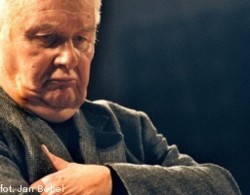 In the year of Henryk Mikołaj Górecki’s birthday, the Festival of Polish Composers in Bielsko-Biała was dedicated to that composer (2nd-4th October). There were also festivals dedicated to both composers: the 2008 International Festival of Chamber Music “The Silesian Quartet and its Guests” (23rd November – 6th December) and the Festival “GÓRECKI ● PENDERECKI on their 75th birthday” organized by the National Polish Radio Symphony Orchestra (28th November – 9th December 2008), which was the largest artistic event celebrating the two masters, with 6 concerts presenting all the stages of their artistic careers from the avant-garde to the most recent works.
In the year of Henryk Mikołaj Górecki’s birthday, the Festival of Polish Composers in Bielsko-Biała was dedicated to that composer (2nd-4th October). There were also festivals dedicated to both composers: the 2008 International Festival of Chamber Music “The Silesian Quartet and its Guests” (23rd November – 6th December) and the Festival “GÓRECKI ● PENDERECKI on their 75th birthday” organized by the National Polish Radio Symphony Orchestra (28th November – 9th December 2008), which was the largest artistic event celebrating the two masters, with 6 concerts presenting all the stages of their artistic careers from the avant-garde to the most recent works.
 Other well known artists also had their round anniversaries: Andrzej Hundziak (80th birthday), Adam Walaciński (80th birthday), Zbigniew Bujarski (75th birthday), Krzysztof Meyer (65th birthday), Marian Borkowski (75th birthday), Zygmunt Krauze (70th birthday), Henryk Melcer (80th death anniversary), Stanisław Wisłocki (10th death anniversary), Tadeusz Paciorkiewicz (10th death anniversary), Henryk Czyż (5th death anniversary), as well as Zbigniew Rudziński (35 years of teaching), Elżbieta Towarnicka (a double anniversary – 30 years of artistic work and 25 years since her first soundtrack). Many music centres celebrated the 10th death anniversary of Roman Maciejewski, and his greatest work, the Requiem, was frequently performed (e.g. on 5th April 2008 in Leszno’s cemetery church, near the composer’s grave; in Poznań during the inauguration of the Poznań Music Spring; in Częstochowa during the final concert of the “Gaude Mater” Festival; as well as in Bydgoszcz, Cracow, Rzeszów, Warsaw and Łódź. Research conferences dedicated to the memory of Roman Maciejewski were held in Poznań and Warsaw, while Leszno hosted a festival of his name (2nd-5th April).
Other well known artists also had their round anniversaries: Andrzej Hundziak (80th birthday), Adam Walaciński (80th birthday), Zbigniew Bujarski (75th birthday), Krzysztof Meyer (65th birthday), Marian Borkowski (75th birthday), Zygmunt Krauze (70th birthday), Henryk Melcer (80th death anniversary), Stanisław Wisłocki (10th death anniversary), Tadeusz Paciorkiewicz (10th death anniversary), Henryk Czyż (5th death anniversary), as well as Zbigniew Rudziński (35 years of teaching), Elżbieta Towarnicka (a double anniversary – 30 years of artistic work and 25 years since her first soundtrack). Many music centres celebrated the 10th death anniversary of Roman Maciejewski, and his greatest work, the Requiem, was frequently performed (e.g. on 5th April 2008 in Leszno’s cemetery church, near the composer’s grave; in Poznań during the inauguration of the Poznań Music Spring; in Częstochowa during the final concert of the “Gaude Mater” Festival; as well as in Bydgoszcz, Cracow, Rzeszów, Warsaw and Łódź. Research conferences dedicated to the memory of Roman Maciejewski were held in Poznań and Warsaw, while Leszno hosted a festival of his name (2nd-5th April).
As in previous years, numerous new Polish compositions were first performed in 2008. The world’s first performance of Bogusław Schaeffer’s new piece Fűr Elise was given on 16th January 2008 at the Polish Embassy in London. Two days later, the Grand Theatre in Warsaw presented the world premiere of the opera for children Magic Doremik by Marta Ptaszyńska to a libretto by the composer after Gianni Rodari’s novel Gelsomino in the Country of Liars, translated by Hanna Ożogowska. The European first performance of the full version of Krzysztof Penderecki’s Symphony No. 8 "Lieder der Vergänglichkeit" (“Songs of Transience”) was held on 31st January 2008 in Warsaw, and the world premiere of Crime and Punishment, a drama in nine scenes with prologue and epilogue after Dostoyevsky, with music by Bernadetta Matuszczak – on 3rd February 2008. Several days later, on 15th February 2008, the 26th “Musica Polonica Nova” Festival of Polish Contemporary Music presented in Wrocław Opera House the premiere of Joanna Bruzdowicz’s new opera The Penal Colony. March brought the first performances of Paweł Łukaszewski’s Concertino for piano and brass (on 9th March 2008 in Cracow) and Mikołaj Hertel’s Athos concerto for harp and chamber orchestra (on 14th March 2008 in Lublin), as well as new works by Dariusz Przybylski, Mirosław Bukowski, Zbigniew Bujarski, Grażyna Pstrokońska-Nawratil and Artur Kroschel, performed at the Poznań Music Spring Festival between 6th and 13th April. On 16th May, Jerzy Maksymiuk’s new composition …but do not stop your flying… was first performed in Gdańsk, and on 9th October – Trajectories for symphony orchestra by Dagmara Jack – in Dresden. The 17th Upper Silesian Festival of Chamber Music "Ars Cameralis Silesiae Superioris" included two first performances: of Called Back by Aleksander Lasoń (23rd November) and the Polish premiere of Wojciech Kilar’s Veni Creator (28th November). At the Festival of Polish Music in Cracow, Wojciech Kilar’s Te Deum had its world premiere (on 9th November), and Paweł Mykietyn’s Passion – its first Cracow performance. Six new Polish compositions: by Alicja Gronau, Paweł Łukaszewski, Andrzej Dziadek, Aleksander Kościów, Artur Cieślak and Bronisław Kazimierz Przybylski – were premiered during the Laboratory of Contemporary Music in Białystok (21st-24th November).
Among the first performances, an event of special significance was the world premiere on 6th December during the Gaude Mater Festival in Częstochowa) of a piece signed by Mozart – the aria Jesu Dulcis Memoria for soprano and clarinet concertante, discovered in the Jasna Góra Monastery archive and now performed by Morphing Vienna Chamber Orchestra conducted by Tomasz Wabnic. There are 18 scores with Mozart’s signature recently found in the Jasna Góra collection – the first to be performed in our times was Jesu Dulcis Memoria.
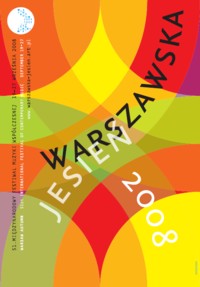 Apart from first performances, the major music festivals held in Poland in 2008 brought many other unforgettable events. The 26th “Musica Polonica Nova” Festival of Polish Contemporary Music in Wrocław (15th-22nd February) featured works of great artistic merit, including Joanna Bruzdowicz’s opera, Tadeusz Baird’s music drama and Rafał Augustyn’s ballet. The title of the 12th Ludwig van Beethoven Easter Festival (9th-22nd March 2008) was Beethoven and his Vienna, and the festival concerts took place in five different cities: Warsaw, Gdańsk, Cracow, Łódź and Białystok. The 15th Opera Festival in Bydgoszcz (26th April – 11th May) opened with a premiere of Engelbert Humperdinck’s Hansel and Gretel, while the “Gaude Mater” Festival in Częstochowa, organized in the same period (1st-6th May) featured special anniversary concerts dedicated to Henryk Mikołaj Górecki, Krzysztof Penderecki and Roman Maciejewski, as well as a Concert of Sacred Works’ Premieres. On 9th-20th May, the International Days of Music by Cracow’s Composers were held for the 20th time in history, and a month later the “Chain V” Witold Lutosławski Festival took place in Warsaw. The second half of August was rich in events of international importance, such as the 3rd World Festival of the Double-Bass (Wrocław, 10th-17th August) and the International Music Festival “Chopin and His Europe” – “From Pogorelić to Tchaikovsky” (Warsaw, 15th-31st August), which presented such famous foreign musicians as Ivo Pogorelić, Grigory Sokolov, Olli Mustonen, Francois-Frédéric Guy, Alexei Lubimov, Nikolai Demidenko, Dina Yoffe, Markus Groh, Kristian Bezuidenhout, Philippe Giusiano, Kevin Kenner and Dang Thai Son. September belonged, as usual, first and foremost, to the organizers of three festivals: “Wratislavia Cantans” (4th-14th September), “Sacrum - Profanum” (14th-18th September) and “The Warsaw Autumn” (19th-27th September). “The Warsaw Autumn” was largely dedicated in 2008 to composers from Spain, Portugal and Latin America, but also abounded in such major events as performances of monumental works by Karlheinz Stockhausen (in Torwar Hall - Cosmic Pulses, Michaels Reise from the opera Donnerstag; in the Koneser Vodka Factory - Hymnen [version with orchestra]), or world premieres of the Festival’s own commissions (incl. works by Paweł Szymański). At the same time the 1st Festival of Contemporary Opera, held in Wrocław (16th-21st September), featured 9 opera and ballet spectacles as well as composition workshops and meetings with authors: Zbigniew Rudziński, Rafał Augustyn, Joanna Bruzdowicz, Tomasz Praszczałek and Mariusz Treliński. At the beginning of October, festivals again dominated the music scene – the 11th Music Festival of the Polish Radio (entitled “The Émigrés” – on 1st-5th October), the already mentioned 13th Festival of Polish Composers in Bielsko-Biała (dedicated to Ignacy Jan Paderewski and the celebrations of Henryk Mikołaj Górecki’s 75th birthday – held on 2nd-4th October), and the 1st International Arthur Rubinstein Music Festival in Łódź (10th-18th October). The Festival of Polish Music in Cracow (9th-16th November) included concerts by the legendary London Sinfonietta. The late 2008 was the culminating point of the national celebrations of Henryk Mikołaj Górecki’s and Krzysztof Penderecki’s 75th birthday.
Apart from first performances, the major music festivals held in Poland in 2008 brought many other unforgettable events. The 26th “Musica Polonica Nova” Festival of Polish Contemporary Music in Wrocław (15th-22nd February) featured works of great artistic merit, including Joanna Bruzdowicz’s opera, Tadeusz Baird’s music drama and Rafał Augustyn’s ballet. The title of the 12th Ludwig van Beethoven Easter Festival (9th-22nd March 2008) was Beethoven and his Vienna, and the festival concerts took place in five different cities: Warsaw, Gdańsk, Cracow, Łódź and Białystok. The 15th Opera Festival in Bydgoszcz (26th April – 11th May) opened with a premiere of Engelbert Humperdinck’s Hansel and Gretel, while the “Gaude Mater” Festival in Częstochowa, organized in the same period (1st-6th May) featured special anniversary concerts dedicated to Henryk Mikołaj Górecki, Krzysztof Penderecki and Roman Maciejewski, as well as a Concert of Sacred Works’ Premieres. On 9th-20th May, the International Days of Music by Cracow’s Composers were held for the 20th time in history, and a month later the “Chain V” Witold Lutosławski Festival took place in Warsaw. The second half of August was rich in events of international importance, such as the 3rd World Festival of the Double-Bass (Wrocław, 10th-17th August) and the International Music Festival “Chopin and His Europe” – “From Pogorelić to Tchaikovsky” (Warsaw, 15th-31st August), which presented such famous foreign musicians as Ivo Pogorelić, Grigory Sokolov, Olli Mustonen, Francois-Frédéric Guy, Alexei Lubimov, Nikolai Demidenko, Dina Yoffe, Markus Groh, Kristian Bezuidenhout, Philippe Giusiano, Kevin Kenner and Dang Thai Son. September belonged, as usual, first and foremost, to the organizers of three festivals: “Wratislavia Cantans” (4th-14th September), “Sacrum - Profanum” (14th-18th September) and “The Warsaw Autumn” (19th-27th September). “The Warsaw Autumn” was largely dedicated in 2008 to composers from Spain, Portugal and Latin America, but also abounded in such major events as performances of monumental works by Karlheinz Stockhausen (in Torwar Hall - Cosmic Pulses, Michaels Reise from the opera Donnerstag; in the Koneser Vodka Factory - Hymnen [version with orchestra]), or world premieres of the Festival’s own commissions (incl. works by Paweł Szymański). At the same time the 1st Festival of Contemporary Opera, held in Wrocław (16th-21st September), featured 9 opera and ballet spectacles as well as composition workshops and meetings with authors: Zbigniew Rudziński, Rafał Augustyn, Joanna Bruzdowicz, Tomasz Praszczałek and Mariusz Treliński. At the beginning of October, festivals again dominated the music scene – the 11th Music Festival of the Polish Radio (entitled “The Émigrés” – on 1st-5th October), the already mentioned 13th Festival of Polish Composers in Bielsko-Biała (dedicated to Ignacy Jan Paderewski and the celebrations of Henryk Mikołaj Górecki’s 75th birthday – held on 2nd-4th October), and the 1st International Arthur Rubinstein Music Festival in Łódź (10th-18th October). The Festival of Polish Music in Cracow (9th-16th November) included concerts by the legendary London Sinfonietta. The late 2008 was the culminating point of the national celebrations of Henryk Mikołaj Górecki’s and Krzysztof Penderecki’s 75th birthday.
In 2008, Polish musicians won the highest prizes during competitions for performers organized in other countries. Łukasz Trepczyński took the 2nd prize in the Chopin Competition in Mariánské Lázně; the “Apollon Musagete” Quartet (Paweł Zalejski – violin, Bartosz Zachlod – violin, Piotr Szumiel – viola, Piotr Skweres - cello) – 1st prize for a string quartet in the 57th International ARD Competition in Munich; Łukasz Długosz – 2nd prize in the 8th International Jean-Pierre Rampal Flute Competition in Paris. In Poland, the French clarinetist Julien Hervé won the Grand Prix of the International Aleksander Tansman Competition Competition of Music Individualities in Łódź. The winners of the well known competitions for composers held in Poland were: Zofia Dowgiałło and Łukasz Godyla (1st prize awarded joint in the 2007 Baird Competition), Elia Marios Joannou from Cyprus (winner of the 11th Kazimierz Serocki International Competition for Composers) and Juan de Dios Magdaleno from Mexico (Lutosławski Award 2008). Polish composers, represented by The Polish Composers' Union, granted their Honorary Awards “for the promotion of Polish contemporary music” to Marian Borkowski, Andrzej Dziadek, Stanisław Moryto and Bronisław Kazimierz Przybylski, and the annual Awards of the Polish Composers' Union for 2008 – to Małgorzata Gąsiorowska (“for her long-time dedication to the promotion of Polish contemporary music and for research work, in particular – her book on Grażyna Bacewicz) and to Tadeusz Wielecki (“for eminent achievements in the field of composition, as well as long-time involvement in the propagation of new music”).
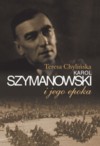 Of the musical publications appearing on the market in 2008, particularly interesting were, among others: Lwowskie geny osobowości twórczej. Rozmowy z Krystyną Moszumańską-Nazar przeprowadziła Małgorzata Woźna-Stankiewicz [Artistic Personality Genes from Lvov. Małgorzata Woźna-Stankiewicz’s interview with Krystyna Moszumańska-Nazar], Witold Lutosławski’s Zapiski [Notes] (edited by Zbigniew Skowron), Rzeki płyną różnymi korytami. Rozmowy z Adamem Walacińskim [Rivers Flow in Their Own Beds. Conversations with Adam Walaciński], the world’s largest opera guide Tysiąc i jedna opera [A Thousand and One Operas] by Piotr Kamiński, Wspomnienia ks. Hieronima Feichta [Memoirs of Father Hieronim Feicht], and the three-volume monograph by Teresa Chylińska - Karol Szymanowski i jego epoka [Karol Szymanowski and His Times].
Of the musical publications appearing on the market in 2008, particularly interesting were, among others: Lwowskie geny osobowości twórczej. Rozmowy z Krystyną Moszumańską-Nazar przeprowadziła Małgorzata Woźna-Stankiewicz [Artistic Personality Genes from Lvov. Małgorzata Woźna-Stankiewicz’s interview with Krystyna Moszumańska-Nazar], Witold Lutosławski’s Zapiski [Notes] (edited by Zbigniew Skowron), Rzeki płyną różnymi korytami. Rozmowy z Adamem Walacińskim [Rivers Flow in Their Own Beds. Conversations with Adam Walaciński], the world’s largest opera guide Tysiąc i jedna opera [A Thousand and One Operas] by Piotr Kamiński, Wspomnienia ks. Hieronima Feichta [Memoirs of Father Hieronim Feicht], and the three-volume monograph by Teresa Chylińska - Karol Szymanowski i jego epoka [Karol Szymanowski and His Times].
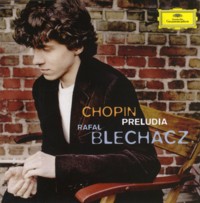 The music industry has granted its annual Fryderyk Awards. For classical music, the greatest winner was Rafał Blechacz’s CD Chopin – Preludes, which won two Fryderyks: for “Solo CD of the Year” and “The Best Recording of Polish Music”. The CD Musica Sacromontana - Józef Zeidler was named “CD of the Year” in the category of “Choral and Choral-Orchestral Works”, the CD Early Music from Jasna Góra Vol. 14 – Tenebrae – in the category “Early and Baroque Music”, and the CD Polish Spirit. Mieczysław Karłowicz, Emil Młynarski in the category “Symphonic Music and Concertos”. Awards in all the other categories went to contemporary music projects. The Lutosławski Piano Duo (Emilia Sitarz and Bartłomiej Wąsik) received the Fryderyk for “Chamber Music” for their self-titled CD, and Paweł Łukaszewski’s Sacred Music – in the “Contemporary Music” category. The CD Karol Szymanowski - Songs. Ops 31 & 49 took two Fryderyks – it was named “A Vocal Recital, Opera, Operetta and Ballet”, and the solo singer Anna Mikołajczyk became “The CD Debut of the Year”. The title of the best classical composer went to Paweł Szymański, and the Gold Fryderyk for the entirety of artistic work was given to the composer and jazz saxophonist Jerzy “Duduś” Matuszkiewicz and to Ewa Michnik, Director of Wrocław Opera.
The music industry has granted its annual Fryderyk Awards. For classical music, the greatest winner was Rafał Blechacz’s CD Chopin – Preludes, which won two Fryderyks: for “Solo CD of the Year” and “The Best Recording of Polish Music”. The CD Musica Sacromontana - Józef Zeidler was named “CD of the Year” in the category of “Choral and Choral-Orchestral Works”, the CD Early Music from Jasna Góra Vol. 14 – Tenebrae – in the category “Early and Baroque Music”, and the CD Polish Spirit. Mieczysław Karłowicz, Emil Młynarski in the category “Symphonic Music and Concertos”. Awards in all the other categories went to contemporary music projects. The Lutosławski Piano Duo (Emilia Sitarz and Bartłomiej Wąsik) received the Fryderyk for “Chamber Music” for their self-titled CD, and Paweł Łukaszewski’s Sacred Music – in the “Contemporary Music” category. The CD Karol Szymanowski - Songs. Ops 31 & 49 took two Fryderyks – it was named “A Vocal Recital, Opera, Operetta and Ballet”, and the solo singer Anna Mikołajczyk became “The CD Debut of the Year”. The title of the best classical composer went to Paweł Szymański, and the Gold Fryderyk for the entirety of artistic work was given to the composer and jazz saxophonist Jerzy “Duduś” Matuszkiewicz and to Ewa Michnik, Director of Wrocław Opera.
The year 2008 also brought sad farewells. Karol Anbild died on 1st March, Krystyna Moszumańska-Nazar – on 27th September, after a long illness. Krzysztof Zaleski – director and editor-in-chief of Polish Radio Programme Two – died suddenly of a heart attack on 6th December. Jerzy Jasieński died the following Day, and Joachim Olkuśnik – on December 18th.
For the Polish Music Information Centre, 2008 was an important year for many reasons, but mainly due to the launch of a new version of our Internet website: www.polmic.pl.
















